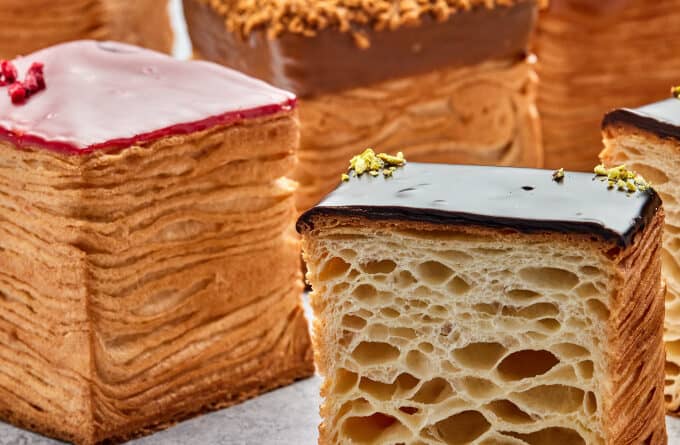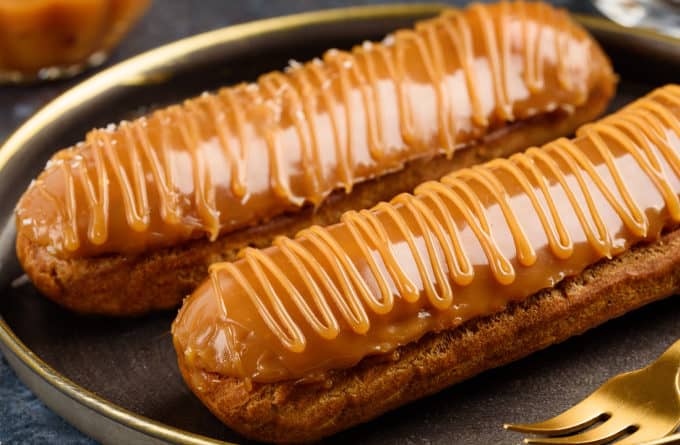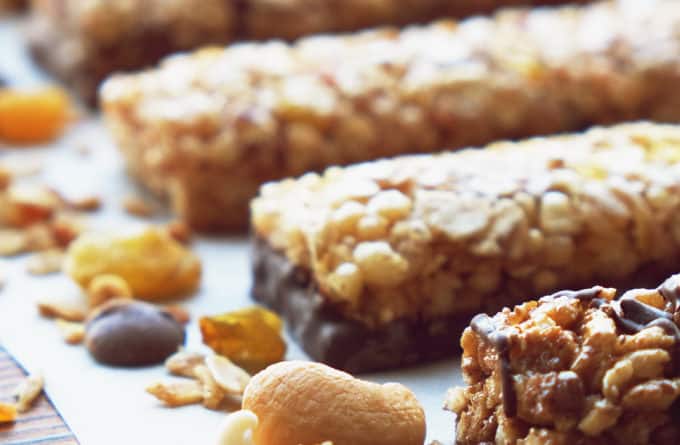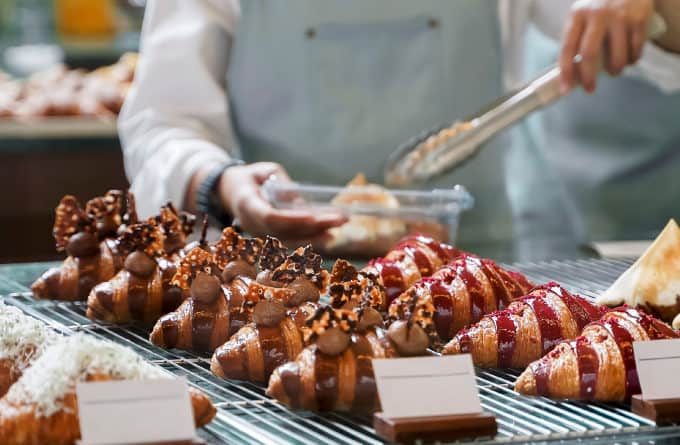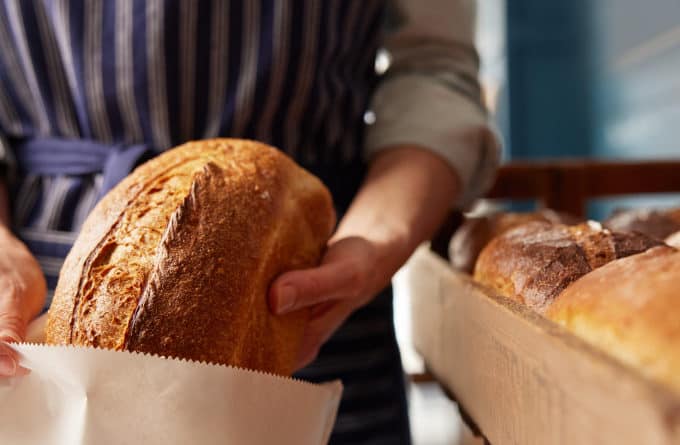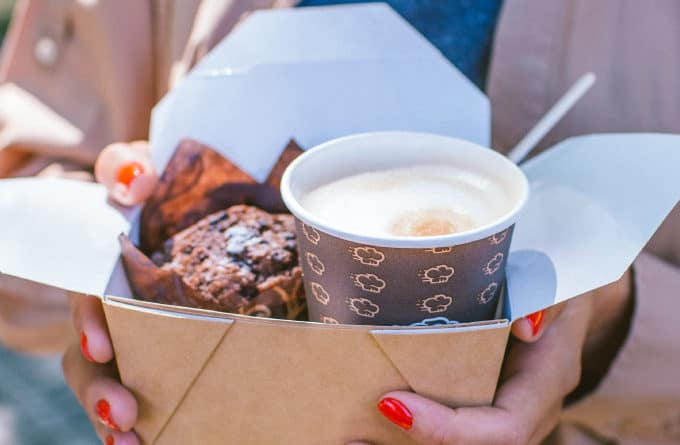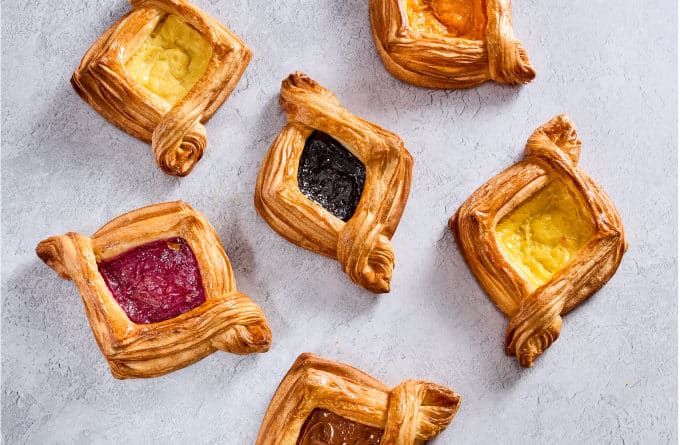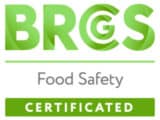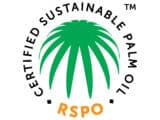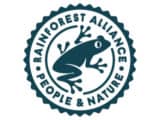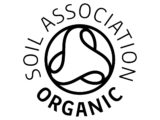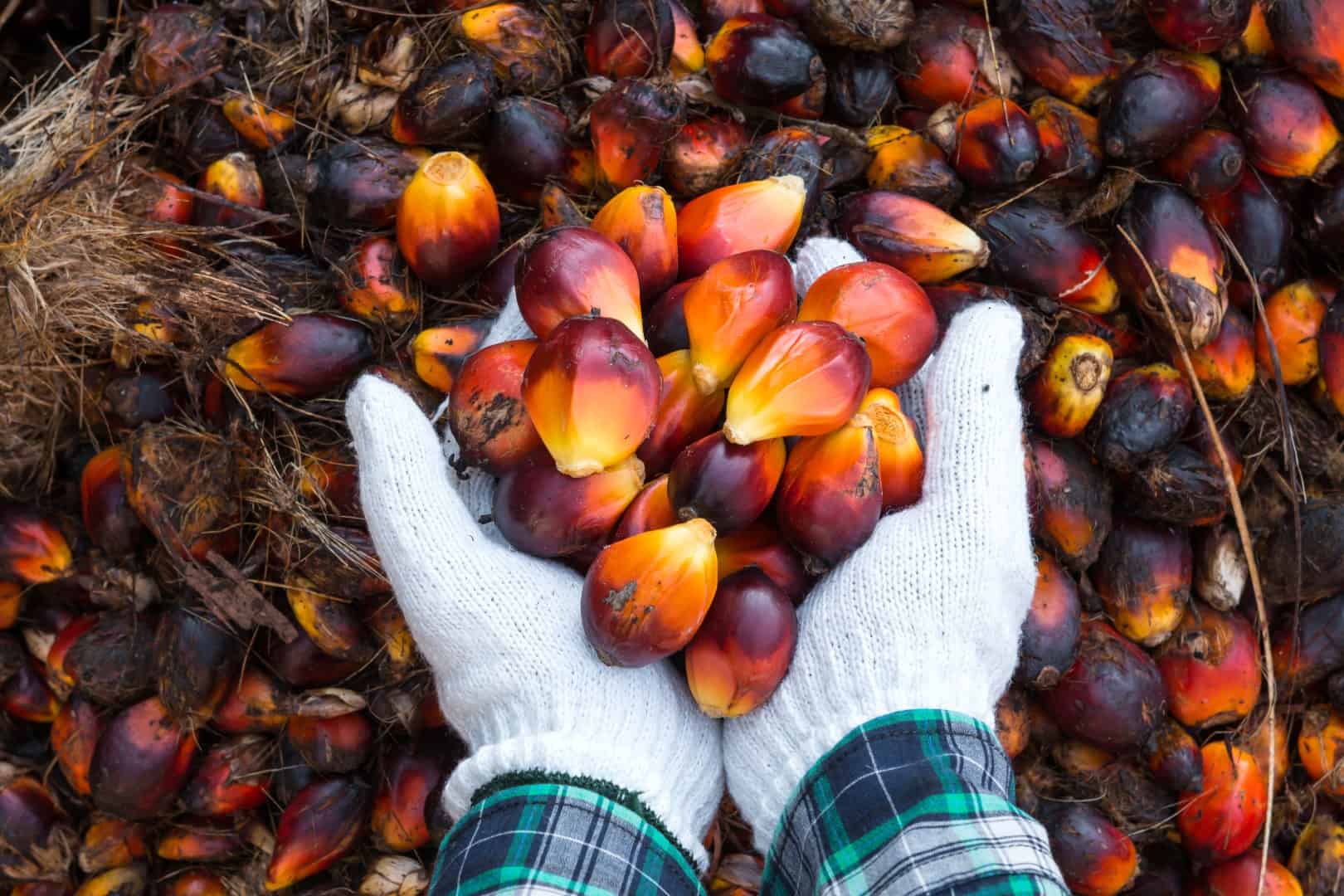
Thanks to a highly emotive but ultimately banned Iceland Christmas advert featuring a Greenpeace video, the link between orangutans and the deforestation of their environments and palm oil is strong. Although the supermarket giant’s ad ended up being canned, the ban probably resulted in it being viewed more times than had it got the green light. And in doing so the whole nation started to question what goes into their food and how ethical it is.
From a customer point of view, the move to a palm-free bakery is strong. It’s vital that bakeries respond to evolving customer demands and tastes and producing ethically-sound baked goods is a key part of that. But, how practical is it for a bakery outfit to make the switch to being totally palm-free? And is it what your customers really want?
What is palm oil and how do bakeries use it?
Palm oil is extracted from the fruits of African oil palms. These trees grow in tropical rainforest environments but because of the demand for palm oil, they are being planted and farmed at high rates to meet demand.
Although palm oil is used in the production of a huge range of products –shampoos, cleaning products and biofuels all use it – the bakery industry makes up a huge part of the demand for palm oil. When broken down into industry sectors, the food industry is responsible for an overwhelming 72 per cent of palm oil used globally.
In bakeries, one of the key ingredients used is margarine, which just so happens to be made with palm oil in most cases. It wasn’t always this way. Up until trans fatty acids got a bad reputation, hydrogenated fats were used to make margarine. But when they were outed as being bad for health, producers switched to palm oil instead. Not only was it an effective alternative for hydrogenated fats but it was also cost-effective, as the crops are super-efficient and produce high quantities of oil per land area in comparison to similar crops. Hardly surprising then that palm oil’s market share has more than doubled since the 1980s.
The solid fat profile of palm oil is exceptionally close to that of butter so it was quickly adopted within the baking industry as a cheap and healthy ingredient. According to a report into the margarine market, according to Mordor Intelligence, Europe holds the largest share of it and it is being increasingly used within the bakery industry.
Get Bakels articles delivered to your inbox
Why has palm oil fallen out of favour?
Unlike many changing tastes – such as the move away from trans fats-containing hydrogenated fats – the palm-free movement has come about not because of the ingredient itself, but because of the way that its production has impacted the environment.
According to Mintel’s Ingredient Watch on Palm Oil: “Health was the defining food/drink trend of the 2010s, but sustainability will dominate the 2020s as pandemic-shocked consumers look for change. The next wave of healthy diets will be those that also support the health of the planet and everything on it. Consumers’ evolving holistic mindset about health and wellbeing will shift the conversation about healthy diets from ‘better for you’ to ‘better for us’.”
Alarmingly, the production of palm oil is said to be responsible for around eight per cent of the world’s deforestation between 1990 and 2008. In order to plant more African oil palms to meet demand, huge swathes of the rainforest were being burned to clear them – but in doing so it upset the biodiversity and left many animals who live in the forest without a home. According to the International Union for the Conservation of Nature, the clearing of tropical forests specifically for palm oil plantations threatens 193 different endangered species, including the tiger, the orangutan, the African forest elephant and the chimpanzee.
It also contributes to climate change; as the Bank of England noted in its own report when it was considering using the resource in the production of the new £20 note: “Forest fires, started to clear land for oil palm, release high levels of carbon dioxide and black carbon (soot) into the atmosphere, contributing to climate change.”
Can a bakery survive without palm oil?
According to Mintel, global food launches containing palm oil have declined over the last five years dropping from 16% to 12%, while in the same time frame palm oil-free claims are on the increase – notably so in Europe.
But there are two schools of thought here: banning palm oil outright or choosing sustainable options.
Making the shift away from palm oil is problematic in itself. If companies turned to other alternative oils, we could well be creating even more problems and see even greater loss of biodiversity. To produce one tonne of oil you would need 9.4ha of land for sesame seed oil crops; 2.9ha for olive oil; 1.4ha for sunflower oil and just .4ha to produce a tonne of palm oil.
So could sustainable palm oil be the better, more environmentally-friendly option? There are several companies that have already developed scientific techniques to produce palm oil without the need for palm trees. C16 Biosciences uses a fermentation-based bio-manufacturing process that echoes the brewing process. Similarly, Kiverdi Inc is using microbes that cleverly transform carbon by-products into a sustainable alternative to palm oil.
When the WWF listed the top three commodities most associated with agricultural-driven habitat loss in its report Covid-19: Urgent call to protect people and nature, it was soy, beef and palm oil that made the list. It called for companies to eliminate deforestation and land conversion from their supply chains and adopt trade policies in line with the guidance of the Accountability Framework initiative.
The Roundtable on Sustainable Palm Oil is a not-for-profit that brings together stakeholders from multiple sectors of the palm oil industry – including producers, processors or traders and consumer goods manufacturers. Its purpose is to develop and implement global standards for sustainable palm oil. In order to produce Certified Sustainable Palm Oil (CSPO), a company must comply with a set of environmental and social criteria. Although there have been some questions raised over how the certification can reassure customers of genuine sustainability, the certification was strengthened in 2018, which British Bakels are proud to be a member of.
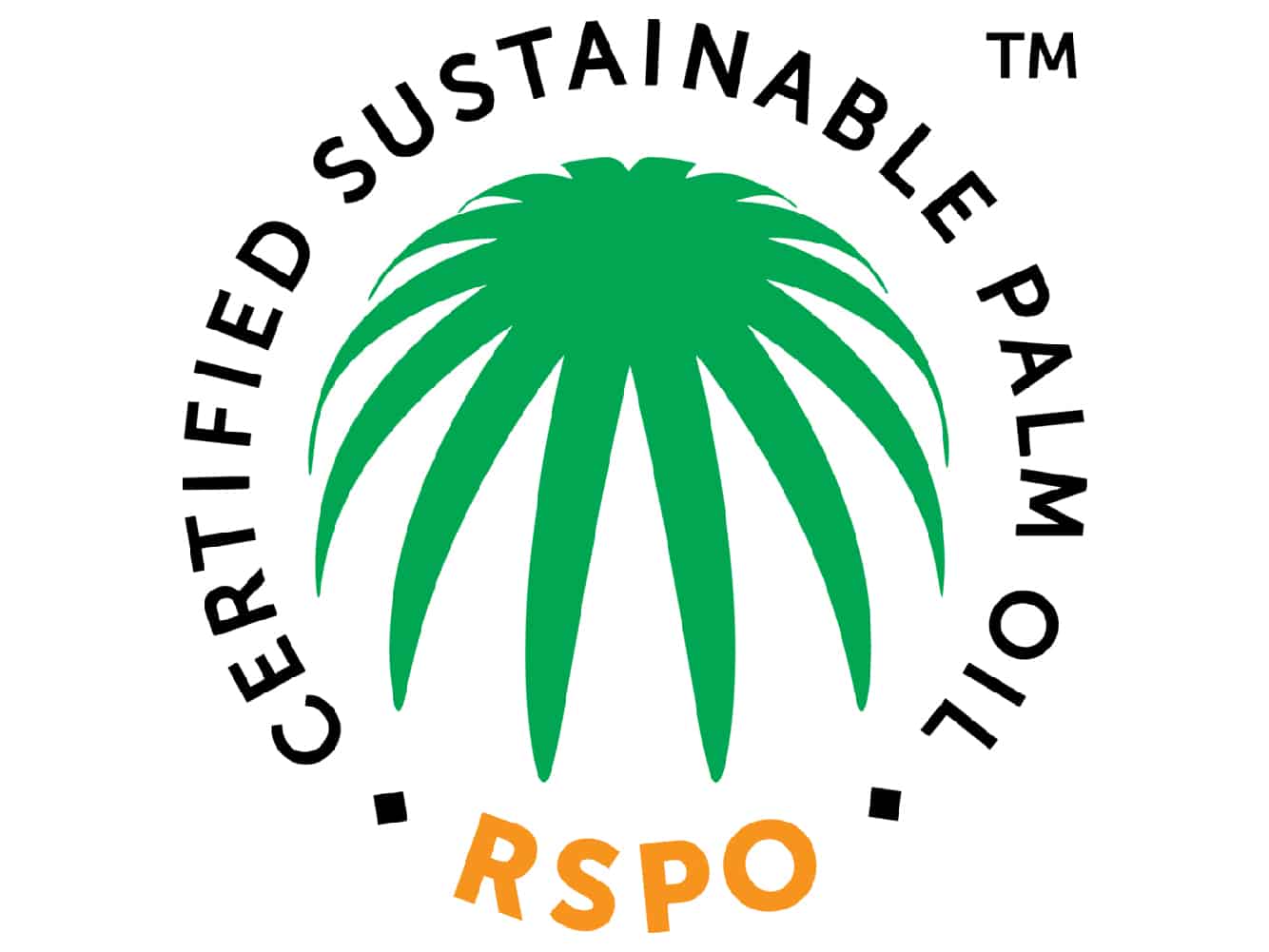
What does the future hold for bakeries and their consumption of palm oil?
Nearly a decade ago the UK government set a commitment for 100% of the palm oil imported into the country to come from sustainable sources. In the most recent UK Sustainable Palm Oil Initiatives report, it was revealed that 77% of palm oil used in food in the UK is now certified sustainable palm oil.
Perhaps the best thing for bakeries is to use a combination of strategies when it comes to how they use palm oil. For a start the use of this oil could be minimised as much as possible. A thorough check of your supply chain will help you to identify those companies that use palm oil, enabling you to then see if they source it from sustainable resources or not.
Elimination is certainly possible as Hull bakery Jackon’s proves. It launched the first mainstream, totally palm-free bread back in 2019 following demand from customers and is now palm-oil free. Iceland started its commitment to removing palm oil from its own-label food by focusing on its baked goods range, redesigned its range of cakes, loaves, tarts and pies.
Importantly any solution you find needs to be a long-term viable solution that is truly sustainable and doesn’t impact on taste. And if you do continue to use palm oil then it’s important you convey to your customers that it is sourced from sustainable sources.
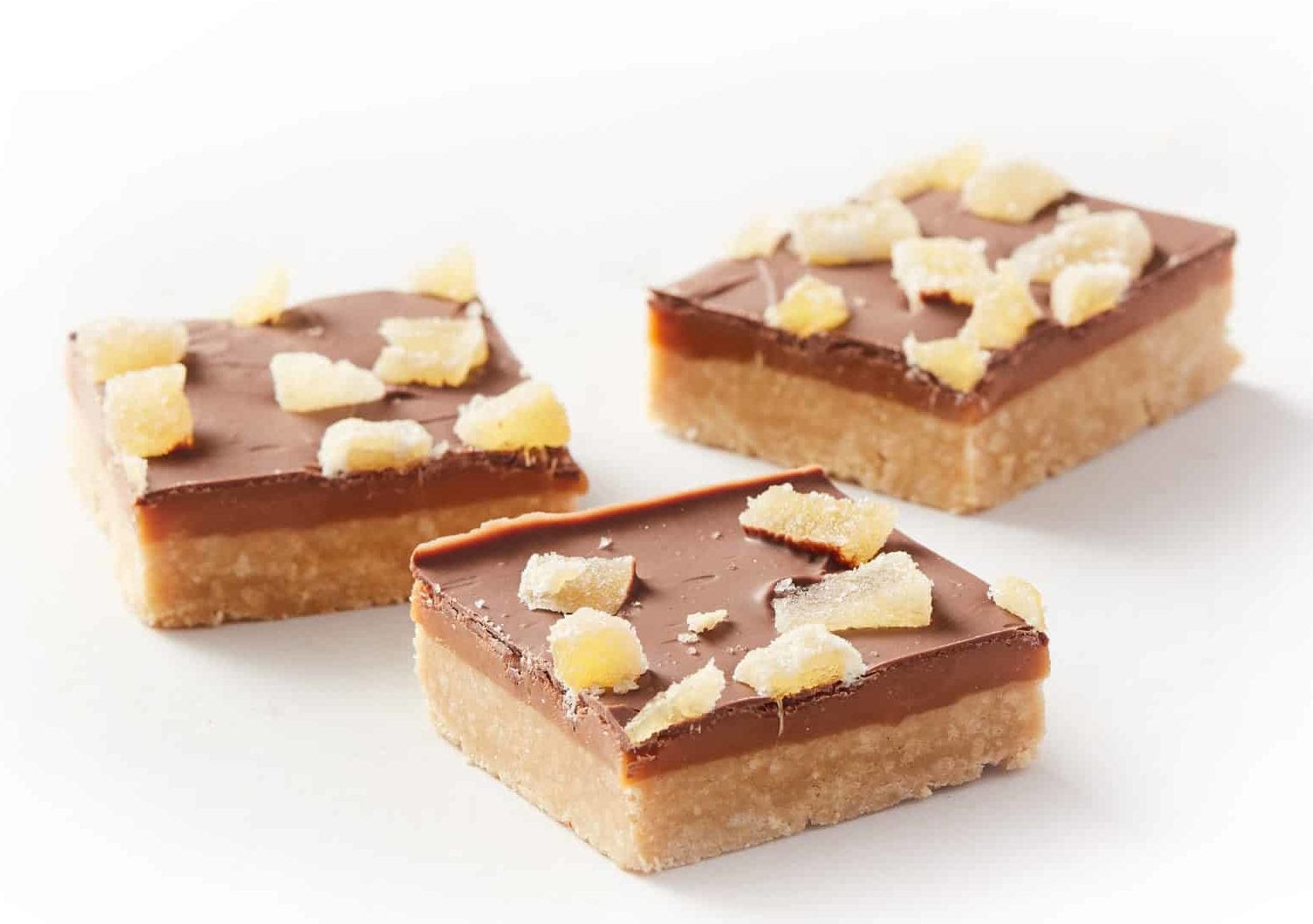
Transform your sweet range with Bakels palm-free caramels
2016 saw the launch of the True Caramel range by Bakels and ever since the range has adapted not only to customer process requirements and consumer taste preferences, but also to support the sustainability movement. Today, the range includes a number of palm-free variants, such as Vegan Caramel PF, Low Sugar Vegan Caramel PF and Millionaires Caramel PF, a palm-free version of our hero Millionaire’s Caramel.
Palm-free solutions do not stop at caramels, including Doughnut Paste Concentrate, Palm Free Crossing Mix and Palm Free Digestive Biscuit Crumb all taking on the attribute.
To get more information about Bakels palm-free ingredients or to find out what we do to ensure as many of our products as possible only contain palm oil from sustainable sources, get in touch.





